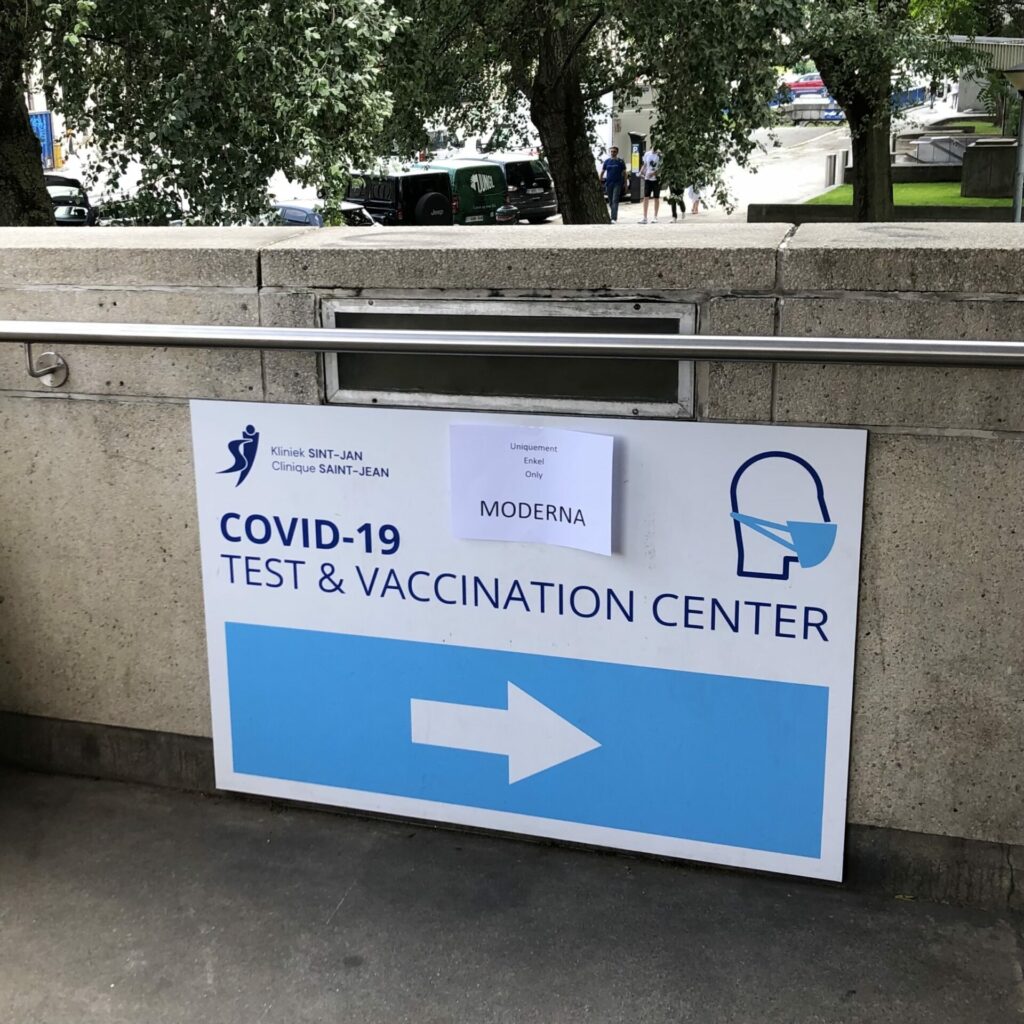An average of 1,481 new daily infections were identified between 27 August and 2 September, down 4% from the previous seven days, according to figures published by the Sciensano Institute of Public Health on Tuesday morning.
The average number of tests taken per day increased slightly since Friday to 7,800, while the positivity rate dropped to 20.4%, meaning slightly more than one in five tests have a positive result.
Omicron BA.5 remains the dominant strain, accounting for 93.5% of all infections. The strain is said to be no more infectious than the other Omicron subvariants but is effective at circumventing people’s accumulated immunity.
Meanwhile, an average of 5.4 Covid-19 patients died each day over the past seven days (-25%). The total number of deaths in Belgium since the start of the pandemic is 32,561. This includes people who died of another cause but who were infected, meaning it may be an overestimate of Covid-19 deaths.
Situation in Belgian hospitals
In the last seven days, an average of 58.4 patients suffering from Covid-19 were admitted to hospitals each day — a 9% decrease from the previous seven days.
The current figures only include the number of people hospitalised because of the virus. Meanwhile, a total of 787 people in Belgian hospitals were infected with the virus on Monday, almost 10 more than on Thursday last week.

A Covid-19 patient being treated inside the Intensive Care Unit of the Clinique CHC MontLegia, in Liege. Credit: Belga
This number does include patients admitted with a different condition who later tested positive. The number of Covid-19 patients being treated in intensive care increased slightly since last week to 63.
Reproduction rate, incidence, and total vaccinations
The reproduction rate (the average number of people that contract the virus from each infected person) has increased to 0.96. When it is below 1, it means that the epidemic is slowing down in Belgium. The incidence (the number of new cases per 100,000 inhabitants) has dropped to 183 over the past 14 days.
Related News
- Belgium's new vaccination campaign: Is a fourth dose really necessary?
- Autumn without Covid-19 restrictions? Experts cautiously optimistic
As of Saturday, almost 7.2 million people have now received a booster dose of the vaccine, representing 76% of over-18s and 62% of the entire population, while more than 613,600 people have had a second booster dose – equivalent to 5% of the total population. This group mainly consists of people aged over 75.
Belgium's regions will soon start inviting a broader group of the general population for additional booster shots from the end of September onwards. Find out why this latest jab is important.

